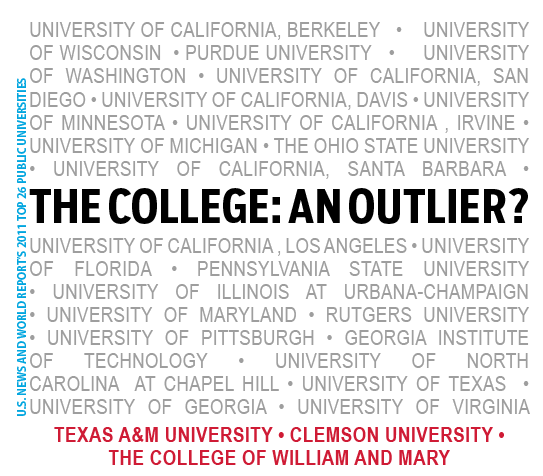In an unanimous decision, the College of William and Mary’s Faculty Assembly adopted a resolution Sept. 24 recommending that the College extend benefits to employees’ same-sex domestic partners.
The resolution — which emphasizes that over 300 colleges and universities in the country grant same-sex domestic partner benefits to their faculties — states that benefits associated with employment at the College should be provided to employees regardless of sexual orientation or gender identity.
At the moment, the College operates on Virginia’s state health plan, which does not extend health benefits to same-sex domestic partners.
“I think the fact that the Faculty Assembly’s vote on that resolution was unanimous is significant,” Faculty Assembly Vice President Susan Grover said. “That suggests to me that this is an idea whose time has come.”
Hispanic studies professor George Greenia said that faculty at the College have been discussing the issue of same-sex partner domestic benefits for about 20 years. In the early 1990s, the assembly endorsed domestic partner benefits twice, Greenia said. In 1993, the College also hosted a statewide conference on Domestic Partner Benefits in Higher Education in Virginia.
Sixteen years later, College President Taylor Reveley, former University of Virginia President John Casteen and former George Mason University President Alan Merten wrote to then-Governor Tim Kaine asking that public universities be allowed to offer domestic partner health benefits. However, the initiative stalled following Gov. Bob McDonnell’s, R-Va., transition into office in 2010.
Faculty Assembly President Suzanne Raitt said the assembly’s Faculty Affairs Committee decided to revisit the issue this year in light of the Supreme Court’s June ruling that federal benefits be made available to all legally married spouses regardless of gender. Committee Chair David Dessler drafted the resolution.
“I think over the last 10 years, we’ve seen a sea change in consciousness about this issue,” Raitt said. “Honestly, I think it’s really different now than the way it used to be. In large parts of this country, it’s the norm to have domestic partner benefits.”
A recent study by two researchers from the University of Tennessee-Knoxville analyzed the top 26 public universities from U.S. News and World Report’s 2011 rankings, focusing on each school’s domestic partnership benefits. Breaking down the benefits into six categories — health care, leave, financial assistance, insurance, counseling and campus services — the study found that only three schools did not offer any benefits to domestic partners of employees: The College of William and Mary, Clemson University and Texas A&M University. The University of Virginia received its only check in the campus services category for providing same-sex partners with recreation center memberships.
Not offering benefits to same-sex partners could put the College at a disadvantage, Raitt said.
“We’re concerned that now that it’s becoming more and more common to offer these benefits at universities around the country and at private universities in this state, it’s becoming harder for us to recruit and to retain not only lesbian and gay faculty, but also people who would prefer to work in a place where those employees are not discriminated against,” Raitt said.
Grover said the College’s image could benefit in the future from extending benefits.
“By offering these benefits, if we ultimately do, one impact may be on our public image as a place that’s welcoming and inclusive,” Grover said. “That matters not just to same-sex couples, that matters to all people who are looking at coming to William and Mary.”
Both Grover and Raitt expressed hope that the College’s resolution may encourage other schools to adopt similar resolutions. After the Faculty Assembly passed the resolution, Raitt said she wrote to faculty contacts at U.Va., George Mason, Virginia Commonwealth University, Norfolk State University, Old Dominion University, Virginia Tech and James Madison University. Within an hour, she received responses from faculty members at all but two schools. Two of the universities are already in the process of creating and proposing similar resolutions, while faculty members at other schools are approaching their senates or boards about the issue, Raitt said.
Raitt said she hopes that leaders from Virginia’s public universities — with the support of their faculties — will approach the governor and raise the issue again.
“We want to be competitive in recruiting and retaining the faculty we want, but I think we also see it as an issue of social justice,” Raitt said. “We feel that some of our colleagues are being unfairly discriminated against.”

